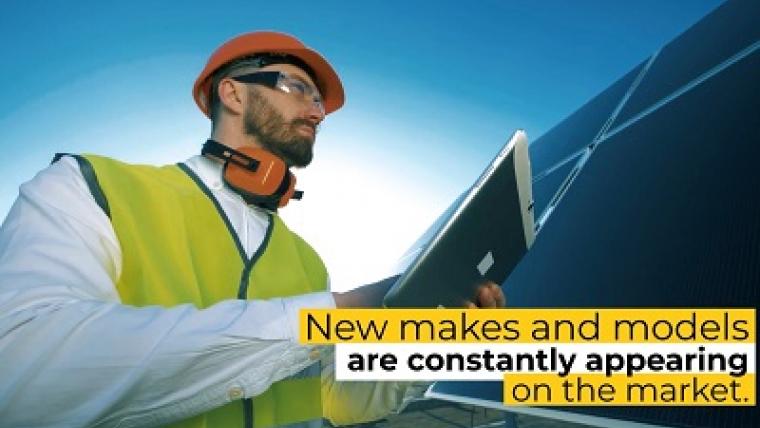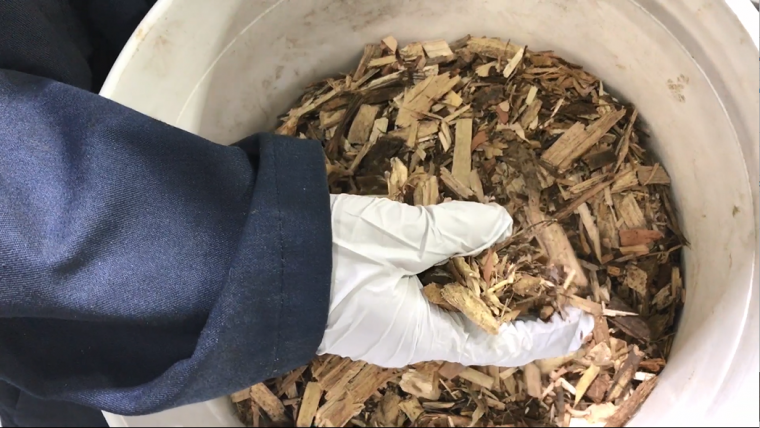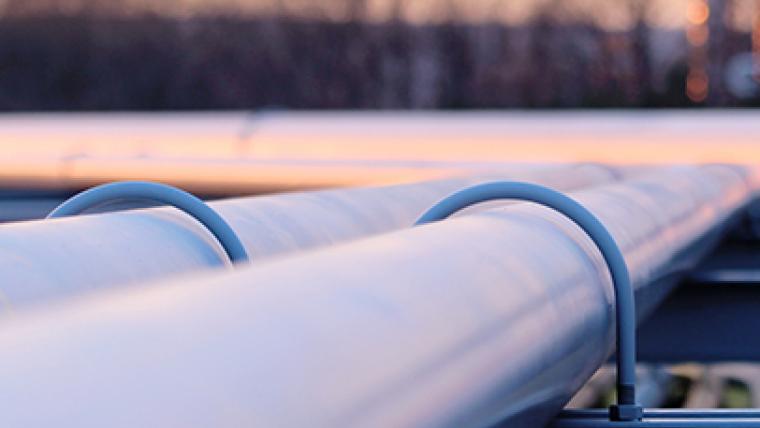Making your home more energy-efficient (Ask NRCan)
We received a lot of feedback from listeners who are interested in energy efficiency and curious about what they can do to make their existing home more energy-efficient. We decided to bring back Chris McLellan from the Office of Energy Efficiency to discuss getting better performance and comfort out of your home.
Transcript
Joel Houle: Welcome, everyone, to Ask NRCan! I’m your host, Joël Houle, and this is our podcast series where we sit down and talk with our experts about their work here at Natural Resources Canada, or NRCan for short. If you’re new to the show, we call this series “Ask NRCan” because we want to hear from you! At the end of the episode, if you have any questions on today’s topic, head to Twitter and tweet at us using the hashtag #AskNRCAN. Our experts will do their best to answer all your questions. We usually release an episode of Ask NRCan once a month, so make sure to subscribe so you don’t miss an episode.
Joel Houle: You may recall, in episode 13 we spoke with an engineer named Chris McLellan who talked about the next generation of energy-efficient homes — how they’re being built and how Natural Resources Canada provides support. We received a lot of feedback from listeners who are interested in energy efficiency and curious about what they can do to make their existing home more energy-efficient. And that’s a good point. This is something that I’d like to do, as well. So, we brought Chris back to see how he can help us reach our goals. Let’s go see what he’s been up to.
Joel Houle: Our returning guest today is Chris McLellan of the Office of Energy Efficiency at NRCan. Chris, welcome back!
Chris McLellan: Well, thank you very much for inviting me back here.
Joel Houle: So in our last conversation we discussed home energy efficiency, the Office of Energy Efficiency housing programs and also building codes. Today, we are focusing on our existing homes. How can we get better performance and comfort out of our existing homes?
Chris McLellan: That's a fairly involved question, I think. You know, performance really depends on what you're concerned with looking at. You need to really look at what your objectives are. Holistically, what do you want out of your house? If we talk about performance, there's always going to be competing elements. Improving one thing can affect another. For example, people like having a lot of windows. But without considering the performance of those windows, you could have some sort of unintended effects such as overheating or rooms feeling cold and uncomfortable. So often we would refer to this sort of cause-and-effect behaviour as the “house as a system” — meaning all these parts of the house and pieces are interconnected in some way.
Chris McLellan: So if you think of your house over 24 hours in the winter with your thermostat set at a constant temperature, say 20 degrees Celsius, and your house is maintaining that temperature, you're in this sort of energy equilibrium. You've got energy flows coming into the house and energy flows leaving the house. Those forms of energy are going to be different. Think of that energy flow in as mostly — it's going to be what you would think of as your purchased energy. You need to buy natural gas or electricity to run your space heating system, so that's your flow in. And then the energy flows out of the house in the winter — that, for example, would be heat loss. So you've got heat flowing through the materials that make up your walls or your ceiling, and then you also have heat loss through air leakage. So these would be the drafts that you're feeling. I guess I'm getting a little bit into the science side of things, this being Simply Science.
Joel Houle: Well, exactly. That's what we want to do here anyways.
Chris McLellan: If you really look at your house in terms of comfort, that's a great place to start if you're trying to save energy.
Chris McLellan: I mentioned cold drafts through air leakage. That's going to affect comfort. If you can seal up those leaks, you'll save energy and your house will feel better, feel more comfortable. As well, those surfaces that you're losing heat out of — if you're inside, you're at 20 degrees Celsius; outside, you're at minus 15 — you're going to have this gradient of temperature throughout your wall. So your surface of the wall is going to be colder than the room temperature, and those surface temperatures in your house will affect your comfort as well. The colder that surface is, the more heat you're losing from your body to those surfaces.
Chris McLellan: So having a well insulated home will make you feel more comfortable as well, just in that sense. And it's also going to save you a lot of energy.
Joel Houle: So how can we tell if our homes are performing at an adequate level or if there's room for improvement? How we can determine whether or not we need to address some of these things that affect our comfort?
Chris McLellan: I think some of the obvious ones are the cold drafts. We talked about that, and that can be a really significant loss of energy in a house, through that draftiness. You can feel them sometimes, but checking out certain elements of your house, weather stripping around doors and windows, seeing if they're sealing well — those are easy things to fix. Looking for small holes and cracks that you can conceivably patch with some sort of caulking or some sort of sealant. Those would be really simple measures to start looking at right away. You get a really good return on your investment in materials and effort, and it's something you can do yourself.
Chris McLellan: Another thing to do is really look at your energy bills. Talk to your neighbors or people in similar houses in the neighborhood, and compare them and see how you're doing. As well, getting an EnerGuide evaluation will really help identify areas in the house where you've got room for improvement and can help identify these sort of concrete steps you can take. Some are fairly straightforward and low-cost, low-effort, such as air sealing, all the way up to what would be the benefit in terms of your energy savings in undertaking a major renovation.
Joel Houle: Speaking of renovation, if we were to invest into trying to improve the performance of our home, how does a person determine what should be their priority?
Chris McLellan: For most people, they're really concerned probably about energy costs. And that's really a great thing to focus on. If your costs are high and you want to reduce them, then saving energy is a great way to go about doing that.
Chris McLellan: Some people also are perhaps more virtuous in their mindset, in that they are concerned about the environmental aspects of either burning fossil fuels emitting carbon dioxide into the atmosphere and therefore they might want to take certain measures to reduce their CO2 emissions.
Chris McLellan: But I think for the general public, I would say costs and comfort are really things to focus on when they're thinking about improving the performance of their house. If you're uncomfortable or if you're going to undertake any renovation measures, always think about how you can improve the energy performance when you're doing those.
Joel Houle: And where would a person start?
Chris McLellan: I think a great way to start is by getting an EnerGuide evaluation done on the home. NRCan has created the EnerGuide home rating service, and what this involves is an energy advisor comes into the house and basically measures up the surface areas of the house, because heat loss is through those surface areas, areas of your windows and doors, the thermal resistance of those materials.
Chris McLellan: Also interesting is that they'll set up a blower door, which allows them to measure the air leakage of the house. They're identifying two of those big areas of heat flow out of the house where you're going to be losing energy. And you get a report that will identify key elements where you can make improvements. And you can get a pretty good sense of how much energy you'd be saving if you undertake these measures.
Joel Houle: I assume that there's more information on the EnerGuide home rating on our website, the Natural Resource Canada website?
Chris McLellan: That's right.
Joel Houle: Okay, we'll make sure to put the link in the description of the podcast. Speaking of what we do here in Natural Resources Canada, how are we helping Canadians make their homes more energy-efficient?
Chris McLellan: At NRCan, we have a research group at CanmetENERGY, and they're looking at new innovations for saving energy. It’s very important that housing remains affordable to Canadians, and innovation is a key part in doing that, we know — typically, trying to save energy. If you need to add more insulation, that's going to add cost. So our research group is looking at cost-effective ways of improving energy performance.
Chris McLellan: One interesting example of that is a panelized retrofit system. This concept is being applied in Europe. We've been doing some pilot projects right here in Ottawa. The house is measured, usually using a 3D laser measuring device, and then panels are fabricated that basically have insulation, cladding, windows already installed. And the idea is that you show up with a truck with all of these panels on it, and then one day you hang these panels on a house and you've bumped up the insulation value significantly. You've got new windows and doors here airtight, and it completely transforms the house.
Joel Houle: That's amazing. Wow!
Chris McLellan: Yeah. To try and do it in sort of the old-school way of stripping cladding, applying foam board, putting new cladding on, sealing around windows and doors or replacing them at the same time is very labor-intensive. The return can be quite good, but we need to find ways to reduce costs. So this is one way.
Joel Houle: Perfect! If our listeners want to know more about where they can get a home evaluation or learn additional information about how to make their existing homes more energy-efficient, are there any resources online that you'd recommend?
Chris McLellan: Well, our web site has quick tips on how to make your house more energy-efficient. As well, there'd be information there about how to find an energy advisor who can perform an EnerGuide evaluation on your house.
Joel Houle: Perfect! Awesome! So we’ll put links to those sites in our podcast description that you probably see below. We'll also include links to other Simply Science pieces, an article and our previous podcast with Chris as well, in case you missed it. So the links are in the description. Thank you so much, Chris, for taking the time to talk to us today.
Chris McLellan: Thank you.
Joel Houle: So, this is the end of the episode, but, like always, it doesn’t mean that it’s the end of the conversation. If you have any followup questions for our experts, get on Twitter and tweet at us using the hashtag “#AskNRCan”.
Joel Houle: Also, if you’re interested in learning more about the scientific work that we do at Natural Resources Canada, check out our online magazine called Simply Science. We have a ton of great content for you, including articles, videos and previous episodes of this podcast. And if you check out the podcast page for this episode, we’ll have links available to any relevant material so you can learn more about what we talked about today. The best way to find Simply Science is to either Google it or click on the banner from our website at nrcan.gc.ca.
Joel Houle: And, If you liked this episode and you’re listening to us on Apple Podcast, Google Play, Stitcher or SoundCloud, please leave a review and subscribe so you can check out any previous or future episodes. That’s all for us today. Thank you for listening! We look forward to hearing from you, and we’ll see you next time.
Page details
- Date modified:


